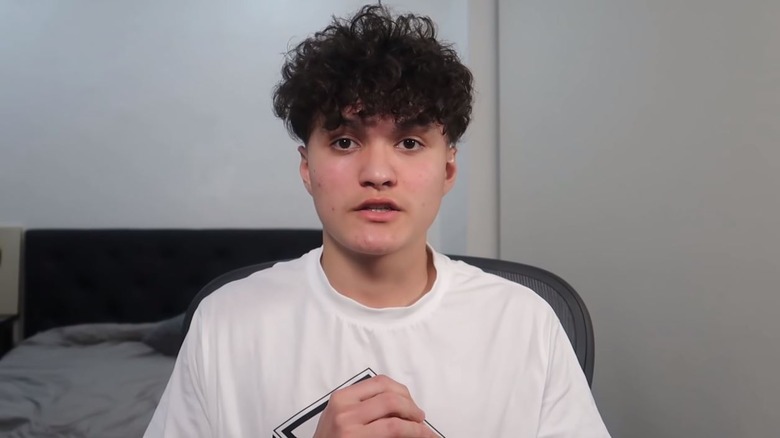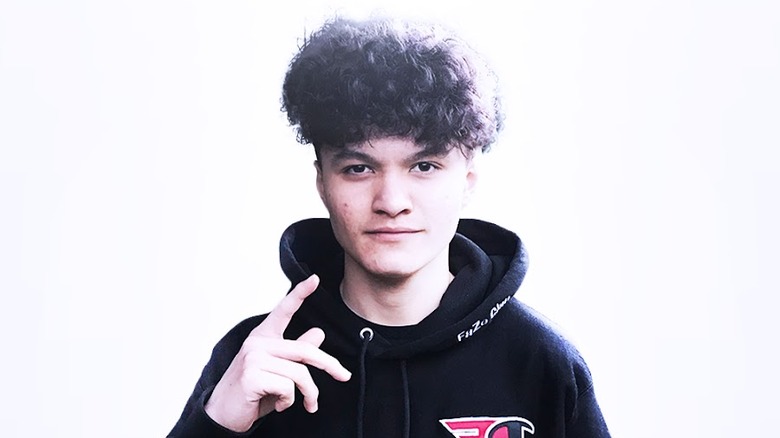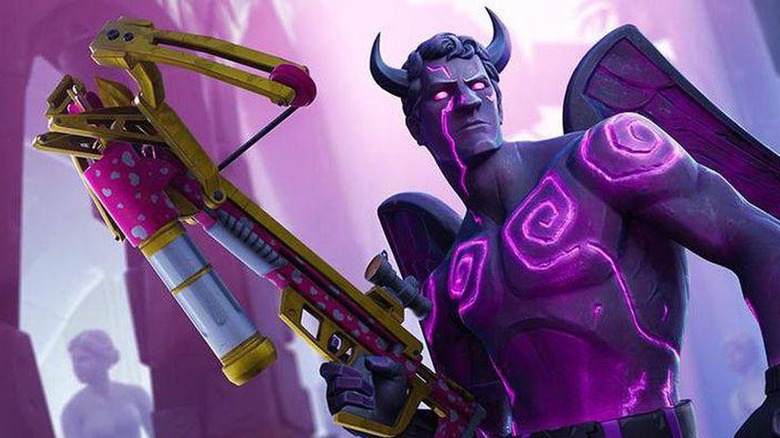FaZe Jarvis Permanently Banned From Fortnite For Cheating (Update: Ninja Responds)
Cheating isn't cool, kids. FaZe Jarvis learned this the hard way after the YouTuber uploaded a Fortnite gameplay video wherein he admitted to using cheats. There's a reason why he never, ever missed a target: he was using aimbots. This cheating software is strictly forbidden by Epic Games, and so FaZe Jarvis soon found that he was permanently banned from the game.
Now it appears Jarvis has found an ally in Ninja, the popular streamer who made headlines this summer by leaving Twitch to sign an exclusive streaming deal with Microsoft's Mixer.
Ninja, whose real name is Tyler Blevins, defended Jarvis in footage captured while he was — you guessed it — streaming Fortnite.
"There's a difference between a content creator who has millions of subscribers, who then gets banned from what makes him money, and some kid who is just a piece of s— who has zero followers, zero money from gaming and hacks," Ninja said.
"You ban that kid and nothing happens to him. Nothing happens. [...] You ban Jarvis, it's different."
It sure sounds like Ninja is arguing for two sets of rules, doesn't it? On one hand, he's fine with everyday people getting banned. On the other, though, he'd prefer there to be fewer consequences for the popular streamers and content creators. We're not sure how many fans that stance will win him.
Now, let's talk a bit about how FaZe Jarvis got himself into this mess in the first place.
What exactly did FaZe Jarvis do to get banned?
In a video entitled, "I've been Banned from Fortnite (I'm Sorry)" Jarvis explained that he used an aimbot while playing Fortnite, and had made an aimbot video purely for entertainment purposes. Unfortunately, he didn't consider the game's terms of service. So now he is banned from ever playing the game again. Any and all of his accounts have been banned, and no, he can't just make new ones either: Epic has him on a permanent blacklist. This not only effects his personal life — he tearfully reiterates how much he loves the game in his video — but also his career.
Like many other YouTubers, Jarvis found success in making Fortnite content. Many of his videos top out at a couple million views and all of them have to do with Fortnite, a game he will never be allowed to play again. Jarvis' YouTube channel has a following of 1.97 million followers, many of whom took to the comment section of his confession video to express their regret. In the emotional video, Jarvis said how, despite not being able to make content or even play the game, he still loves Fortnite and understands Epic's decision. He just wasn't expecting a lifetime ban.
What is Epic's policy on cheating?
Those fans in the comment section? They weren't so surprised. Many pointed out that Jarvis did this to himself, with one commenter saying, "It confuses me on why he thought aimbotting would be ok in the first place especially on video like no matter the age you should realize how bad cheating is, it just boggles my mind on why he even did it." In the aimbot video, which was deleted from Jarvis' challenge, he specifically made a new account in order to use the aimbot. To try to stay under Epic's radar, he played a few rounds without the aimbot before reveling in the glory of never missing a single shot. This impeccable, impossible aim is what got him caught. It's clear he knew what he was doing was shady, but apparently Jarvis wasn't sure how much trouble using an aimbot would get him into.
Epic Games has repeatedly made it clear that it doesn't like cheating. Get caught, and there are some serious consequences. Speaking to Polygon, an Epic Games spokesperson said, "We have a zero tolerance policy for the usage of cheat software. When people use aimbots or other cheat technologies to gain an unfair advantage, they ruin games for people who are playing fairly." Long story short: Epic Games takes cheating very, very seriously.
Does Epic treat Fortnite cheaters fairly?
Last year, Epic Games made waves when it came out that the company was suing a couple of YouTubers for posting videos that demonstrated cheating software. Brandon "Golden Modz" Lucas and Colton "Excentric" Conter had videos like the since-deleted "FORTNITE HACKER AIMBOTS LITTLE KID UNTIL HE CRIES! (Aimbot & ESP)" copyright stricken by Epic Games. Golden Modz said he was confused because "there's about a thousand other creators on YouTube that make Fortnite content." He claimed that, despite many other channels uploading similar content, he was being unfairly targeted by Epic, who wanted the money that the YouTubers made from the cheating videos along with damages and court costs. Yikes.
Epic means business when it comes to punishing cheaters. Before Golden Modz and Excentric, Epic went after a kid for using cheating software. Caleb Rodgers, a 14-year-old Fortnite player, admitted to using cheats after being sued by Epic. He places the blame on Epic, however, saying that cheats are freely available. On his YouTube channel, he had hosted guides for using one such cheat, which is what got him in legal hot water with Epic Games. Rogers' evidently legally savvy mother fought back, saying that Epic illegally released her son's name and that the company cannot prove that it lost any profits as a result of him cheating. How is a fourteen year old meant to pay damages? With his allowance?
This controversy made many fans feel that Epic is too stringent with its cheating policies. Or, at the very least, overly litigious. The company seemed a little too eager to break out the lawyers and go after a teenager for cheating.
There are many in the Fortnite community who believe that Jarvis' punishment is unnecessarily harsh. He wasn't playing in a competitive setting: what's the harm? Following Jarvis' lifetime ban, popular YouTuber The Fortnite Guy pointed out that, when pro player Damion "XXiF" Cook was caught cheating, he only received a 14 day ban. He was later allowed to play in the Fortnite World Cup. That's not a good look, Epic.




